We look into what the evidence says to answer the question does drinking water while eating reducing digestion by diluting digestive enzymes in the stomach in normal healthy individuals?
Sometimes it seems there’s a new wellness fad every day. Grapefruit diets, zero carb lifestyles, appetite suppressant lollipops – please stop me or I”ll be at it all day. While most are misguided and sometimes dangerous, some have at least some redeeming qualities.
Gut health, for example, has been a popular topic for some time now, and in this case, it’s for good reason. It’s legit! A healthy microbiome plays a role in immunity, disease prevention, and digestive system regularity. On the other hand, there is a trending idea that drinking water while eating can reduce digestion by diluting digestive enzymes which in turn can result in poor nutrient absorption. What does the research say on drinking water while eating and digestion? Let’s find out.
Digestion 101
First, it’s important to understand the digestive process from beginning to end. Digestion is the body’s process for breaking down the food we eat into smaller and smaller molecules so that the usable nutrients can be absorbed by our bodies and supplied to our cells. The process begins in the mouth as we chew, and our food begins to mix with digestive enzymes produced by salivary glands. When we swallow, food goes down the esophagus and into the stomach which produces acids and enzymes that further break down what we’ve eaten into a thick, partly-fluid substance called chyme. The stomach then sends chyme to the small intestines where most of the magic happens. Chyme mixes with digestive juices from the pancreas and liver and then, with water as the transport medium, the nutrients from the food we’ve eaten are absorbed into the walls of the small intestines and sent out to our cells. The waste that remains moves into the large intestines, through the colon and rectum where, well – you know the rest.
But, let’s continue the investigation a bit further.
Does Drinking Water While Eating Reduce Digestive Enzymes?
There are three primary types of digestive enzymes, each identified by the macronutrient, or substrate, it hydrolyzes, or processes. Amylases break down carbs and starches into sugar molecules which provide energy for the body. Lipases break down fats, or lipids, into absorbable molecules. Proteases are enzymes that break down proteins into absorbable amino acids.
These enzymes attach to particular substrates they are designed to digest. Water molecules are then utilized to complete the hydrolyze process and release the nutrients for absorption. That process is not hindered based on normal, moderate consumption of water during a meal as enzymes are specific to their non-water target.
does Drinking Water While Eating Reduce Digestion?
The idea that drinking water disrupts digestion is simply not true. Scientists actually disproved this theory in a study that compared the digestion of liquid and solid meals. Their conclusion? Both meals took the same amount of time to be digested, giving us a clear indication that consuming liquid with a meal does not hamper the speed of digestion.
Remember, enzymes do not target water – they target nutrients. Each type of enzyme seeks the binding location of the specific nutrient for which it is designed. For example, if amylases enzymes don’t detect carbs they will not and can not bind something else. And water, of course, does not have these specific binding locations.
But can digestive enzymes be watered down? Honestly, it is virtually impossible. Whenever an imbalance in digestive enzymes is detected in the stomach, the enzyme Gastrin compensates by producing more stomach acids to break down nutrients. The because the remainder of the digestive tract (like the mouth, esophagus, and intestine) has a neutral pH of around 6-7, it would take an abnormally large amount of water to cause any major change in digestive pH. The human body really is amazing!
All things considered it is simply inaccurate to assume that water can impact digestion in any major way.
Why Drinking Water with Your Meal may actually HELP Digestion
Water is a significant player in the process of digestion.
For one, saliva, a digestive enzymatic fluid, is mostly made of water. It’s important for the chewing and swallowing stages (otherwise eating would be like swallowing a big fat horse pill DRY with each bite). And two, water also softens soluble fibers creating soft stool to prevent constipation. So yah, there’s a reason why humans are 60% water, and digestion is just one of the many reasons water consumption is essential to keep the human body operating as it was designed.
other Benefits of Drinking Water with meals
We do know that drinking water with meals has countless benefits. Aside from increased hydration, water can increase feelings of satiety and fullness. A study conducted in 2010 found that consuming 500 mL of water with a meal increased weight loss within the experimental group. Researchers contributed this weight loss to decreased calorie intake because of the increased feeling of fullness.
For those with clinical digestive issues, many “diets” designed to improve digestive health endorse water consumption. As seen in the low FODMAPs “diet”, water intake over consumption of sugary beverages is highly recommended. This way of eating is meant for those with diagnosed digestive issues and may help assist in improving bloating, flatulence, and a load of other digestive problems.
And lastly, drinking water with meals encourages us to be more intuitive and present with our eating. Making the effort to slow down, take a few sips of water, and really enjoy our meal can lead to a much more pleasant eating experience. Consuming water with food can help us engage with our body and be more mindful of hunger cues.
bottom line
Science has shown us that water is an essential nutrient. Consumed in proper amounts, water actually supports, not interferes with digestion (along with all other bodily functions). Water keeps the GI tract hydrated and helps break down food and provides an aqueous medium for nutrients to travel along the digestive system. It helps transport nutrients through the small intestines, and softens the stool preventing constipation. There is no science behind the claim that consuming water before, during, or after a meal in any way hampers the digestion process by “diluting” enzymatic activity. So go ahead, pour yourself a big one and get sipping!
Contribution by Grace Carroll
Updated on October 24th, 2020

Abbey Sharp is a Registered Dietitian (RD), regulated by the Ontario College of Dietitians. She is a mom, YouTuber, Blogger, award winning cookbook author, media coach specializing in food and nutrition influencers, and a frequent contributor to national publications like Healthline and on national broadcast TV shows.
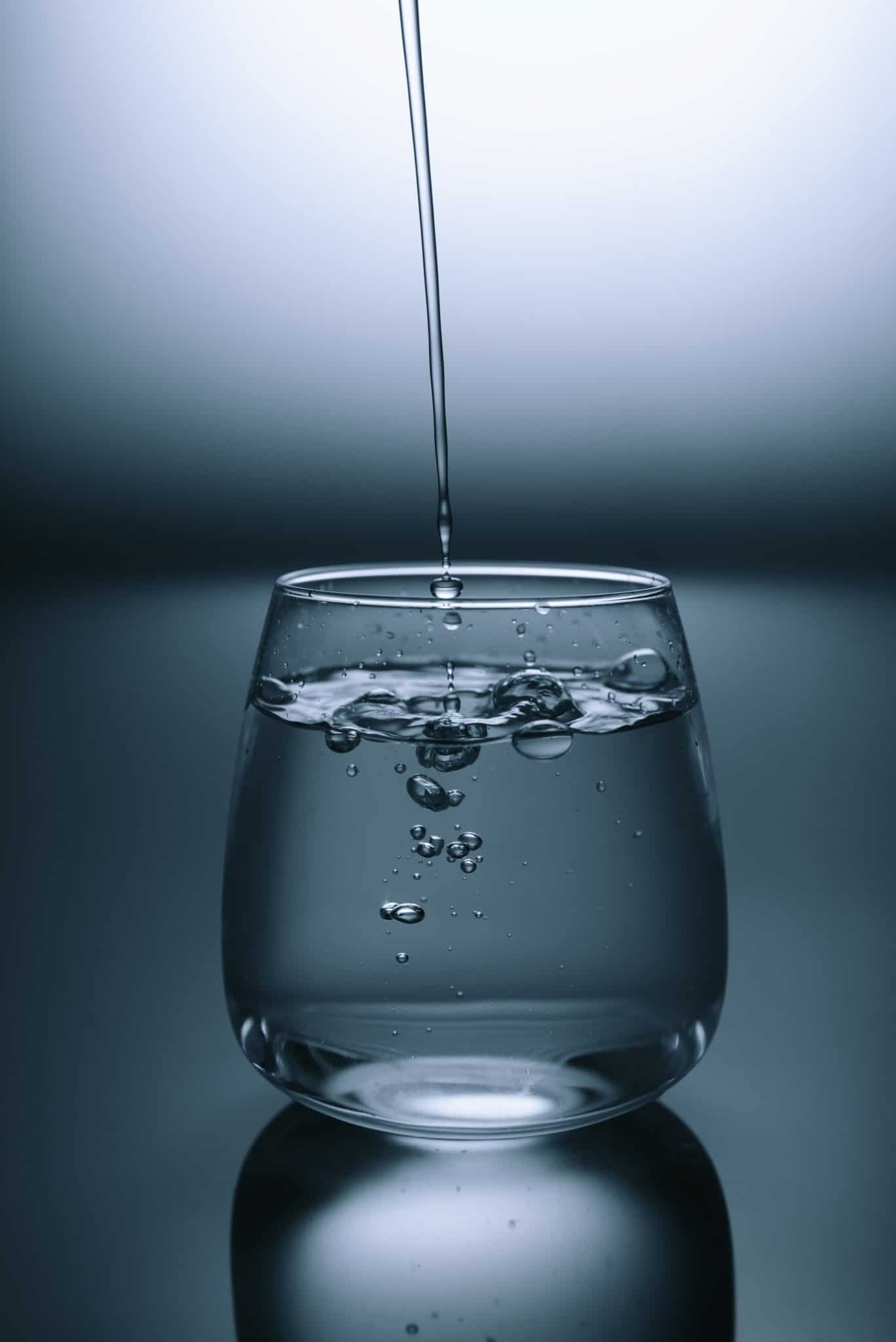
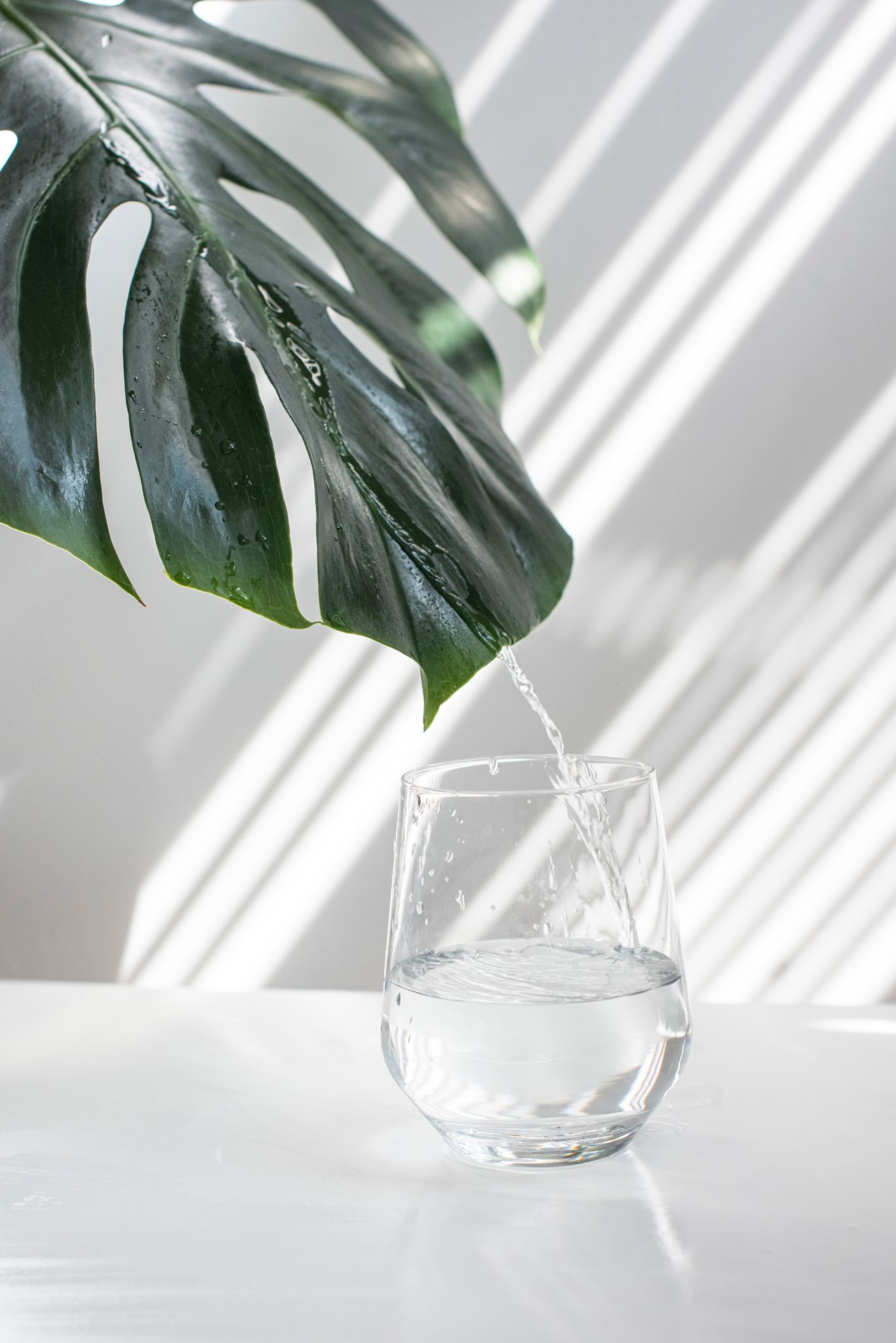
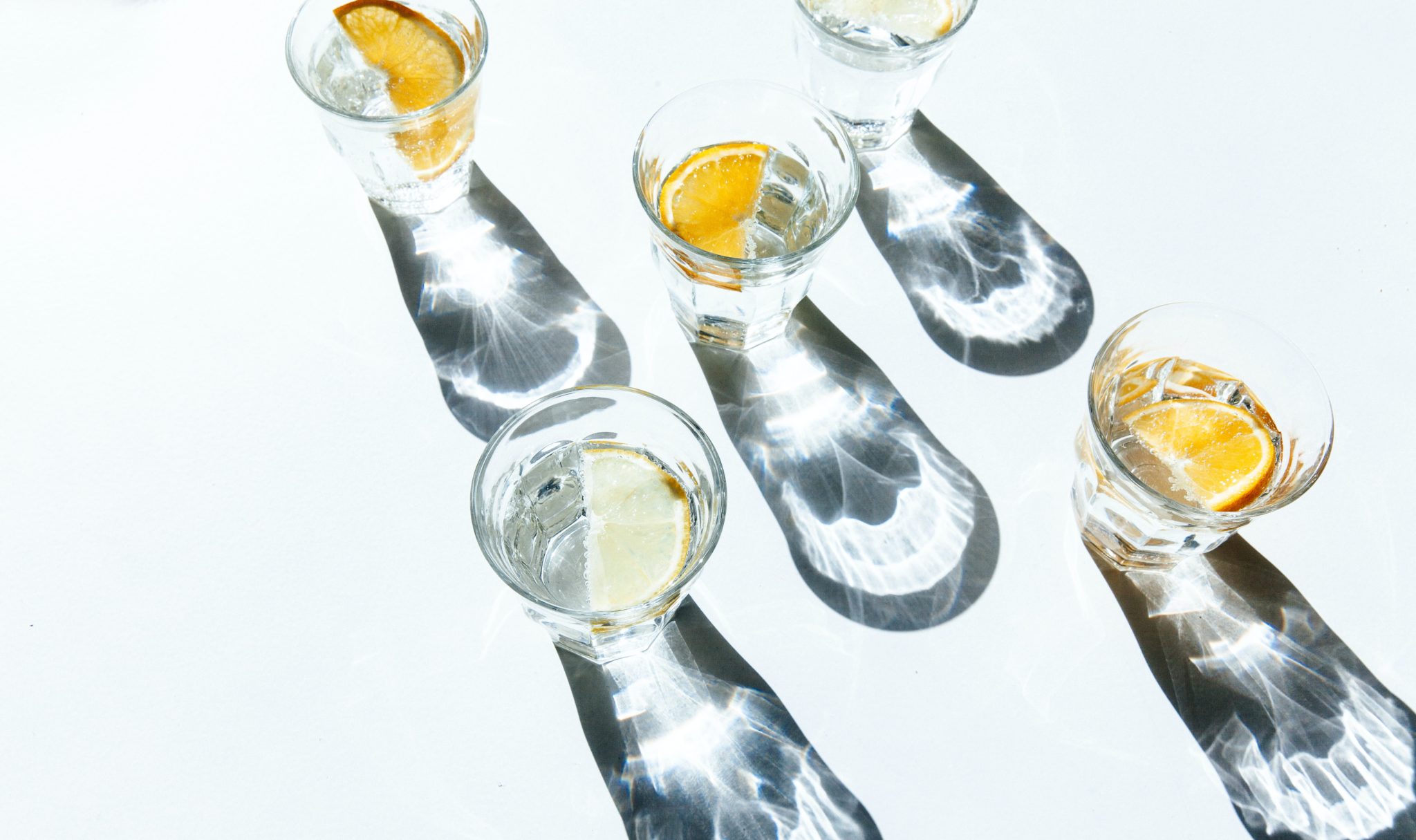
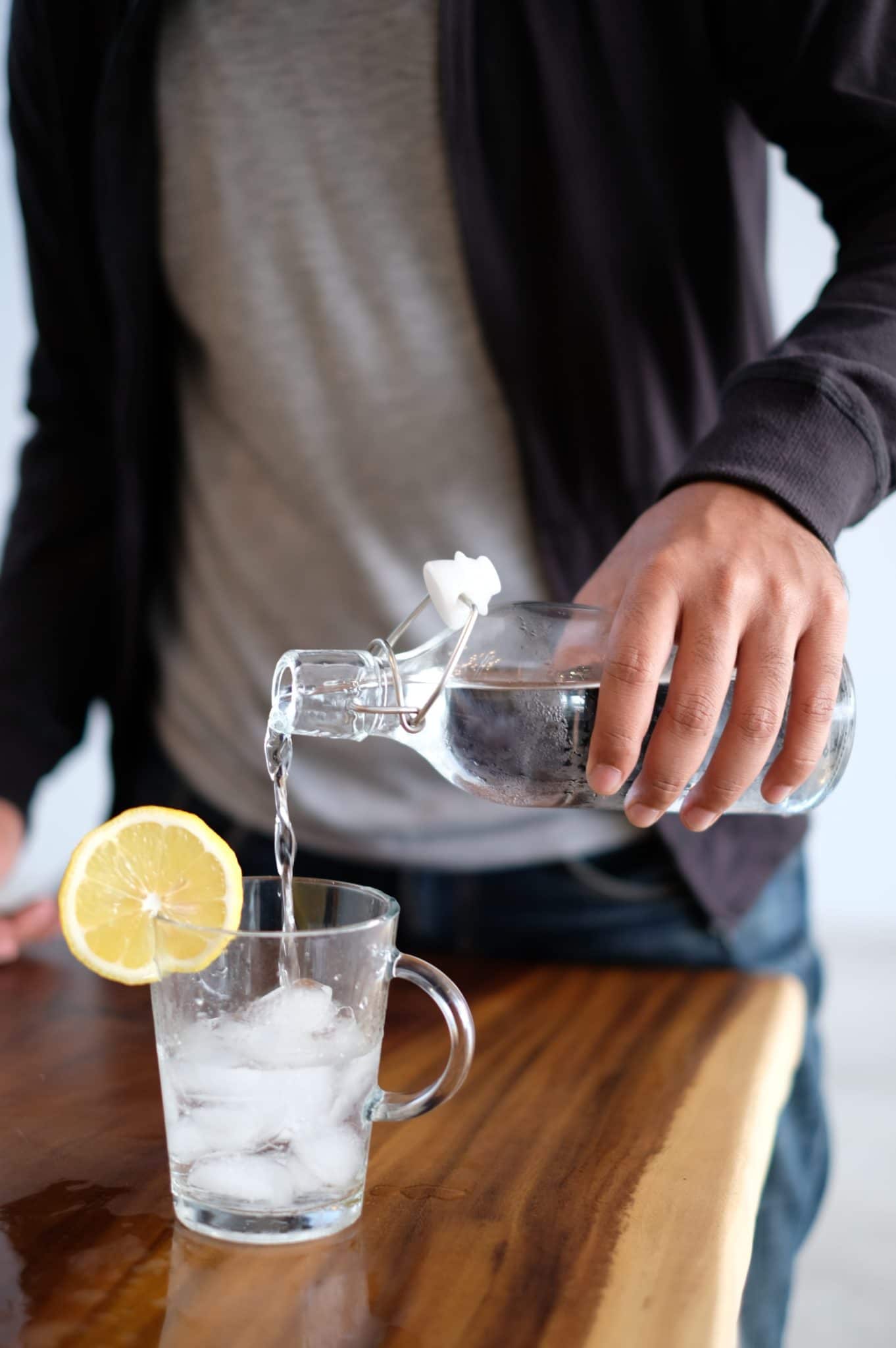

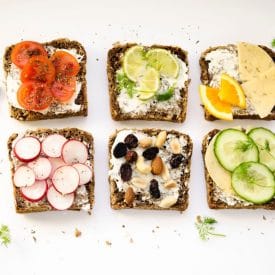

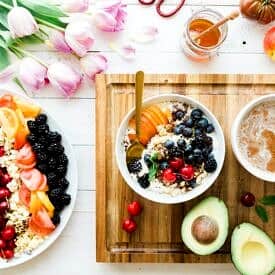

Julez says
I never thought about this before. I’d heard that drinking “while” eating wasn’t the best for you, but I think it definitely curbs the chance of overeating. I just drink intuitively tbh, especially if the food needs it LOL! I’ve found that I’ll drink more that’s in my glass if its spring water at home, VS tap water at a restaurant. We get ours from Cedar Springs in Toronto & we’re so appreciative of the taste.
Good article!
P.s. Do you know If carbonated water affects digestion at all? We love Mountain Valley bubbly, too!
Rowan says
Hi Abbey,
I’ve been really happy to find your content. When I was 12 I was diagnosed with ARFID (Avoidant-Restrictive Food Intake Disorder), I think it’s neurologically linked. It’s classified with other food disorders, which I guess it is, but for me it really feels like… a physical impairment. I simply cannot eat 99% of foods. I was wondering if you had any suggestions for resources for trying to tackle this. I’m 25 now, I saw plenty of doctors who told my mom that I would grow out of it, but I’m still eating the same five-ish foods (plain wheat products – pasta, bread, etc, peanut butter, plain potatoes, veggie nuggets, veggie cheese) I always have (went vegan at 16 for animal rights reasons, now I just eat vegan versions of the safe foods). I’m nervous to try seeing dietitians or doctors again, but I’m worried about my health. Sorry, I know this isn’t meant for health or diet advice, but if you could point me in some direction, I’d be grateful.
Abbey Sharp says
Hi Rowan. I would recommend speaking directly to a dietitian who specializes in eating disorders like a Certified Eating Disorder Dietitian (CEDRD), as they would be better able to assist you with your specific needs.
Leticia says
Hi Abbey!
I read at your text that the pH level of the stomach is around 7: “And with a neutral pH of 7.0, it would take an abnormally large amount of water to cause any major change in digestive pH.” But the gastric acid does not have this pH (if it was, it would not be an acid), so if you could double check that would be great and if I’m wrong please correct me 🙂
Abbey Sharp says
Hi Leticia. Thanks for your comment.
In parts of the digestive system like the mouth, pharynx, and the esophagus, the pH is around 7 (weakly acidic). The stomach of course has a higher acidity due to gatric acid (like you mentioned) around 1.5-3.5. And the pH of the intestine increases to around 6-7. I’ll fix the text now to make this more clear! Thank you for your feedback.